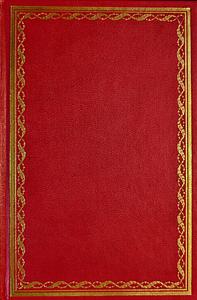Take a photo of a barcode or cover
This was a really great chronicle of an American family. It was long and drawn out for me, personally. However, knowing how much this story meant to Haley’s family and how many people can identify with his story, I appreciate his attention to detail and creative storytelling.
Amazing story. Excessive in length, otherwise I'd give it five stars.
This has to be among the most moving, emotionally overwhelming, perception-altering books I have ever read. For someone who lives in a different continent – whose acquaintance with slavery is only through the odd reference in a book, movie, or in popular culture – reading Roots triggered a whirlwind of emotions, and was a huge learning experience.
I chanced upon this book after my favourite film director - Pa. Ranjith, who belongs to a community that is perhaps perhaps the most persecuted, the Dalit community in India - mentioned in an interview how this book was almost life-changing for him. Ranjith was able to powerfully resonate with the struggle faced by African-Americans: "He lived in another continent, but he lived a life that I lived", were his exact words.
Roots is also an example of how the very bloody genealogy of oppressed communities around the world must be documented at all costs; for in their struggle lies a source of power for their descendants to assert and build a powerful counterculture, something they are still being denied from having.
I am writing this review right after I finished the book, and I am still reeling in awe of the amount of research that went into compiling this magnificent book. I wholeheartedly believe that the parts that were supposedly envisioned by Alex Haley for lack of documented evidence about what Kunta Kinte and his descendants experienced were as close to reality as it could possibly get.
Please read this book.
I chanced upon this book after my favourite film director - Pa. Ranjith, who belongs to a community that is perhaps perhaps the most persecuted, the Dalit community in India - mentioned in an interview how this book was almost life-changing for him. Ranjith was able to powerfully resonate with the struggle faced by African-Americans: "He lived in another continent, but he lived a life that I lived", were his exact words.
Roots is also an example of how the very bloody genealogy of oppressed communities around the world must be documented at all costs; for in their struggle lies a source of power for their descendants to assert and build a powerful counterculture, something they are still being denied from having.
I am writing this review right after I finished the book, and I am still reeling in awe of the amount of research that went into compiling this magnificent book. I wholeheartedly believe that the parts that were supposedly envisioned by Alex Haley for lack of documented evidence about what Kunta Kinte and his descendants experienced were as close to reality as it could possibly get.
Please read this book.
I came into this book believing that it was fictionalized history. I thought all the key facts were 100% accurate and that Haley simply added dialogue and minor details to flesh out the daily life of his characters. I was thinking it was something very similar to Gore Vidal's style of historical fiction.
Very early on, I was disabused of this notion. Multiple times during the early going, I caught myself thinking, "That doesn't sound right." So I stopped and did some fact checking. I stumbled across two major things that I feel need to be shared right out of the gate. First, many historians and anthropologists have pointed out a plethora of errors in this novel. Second, Haley was sued for plagiarism and settled out of court for half a million dollars (that's in 70's money). Obviously, if he was stealing large segments of someone else's fictional work, it cannot possibly be his own factual accounting.
Once those two facts were square in my mind, I was able to truly enjoy this book for what it really is: historical fiction. Rather than viewing this book as 95% history with 5% fiction thrown in for color, it is better to see it as about one-third fact and two-thirds fiction. With this in mind, I was able to enjoy Haley's work for what it was, instead of criticizing it for what he claimed it to be.
Roots spends the first half of the book retelling the life of Kunta Kinte. It begins with his being raised in a small village in West Africa, shares his capture and harrowing journey across the Atlantic on a slave ship, and then shares his life as a slave in Virginia. The second half of the book then follows his progeny across more than a century as they did their best to make a life for themselves and maintain their identity by holding on to the memory of their "African" ancestor.
Since Roots has come out, there have been many other books sharing the lives and details of slave life. Two recent movies I would strongly recommend along these lines are Harriet and 12 Years a Slave. Although some of these works are better written and others are far more accurate, one thing cannot be taken from Roots. It was the first. No other such work like this can be said to have nearly the impact that Haley's work had forty-plus years ago. It changed the way we collectively view our American past. It paved the way forward for those others.
So if you are looking for the best or most accurate retellings of slave life, this is not the work to go to. But if you are interested in reading the book that changed our memories for the better, dive in. Just remember that this is a work of historical fiction, with an emphasis on the latter word, not the former.
Very early on, I was disabused of this notion. Multiple times during the early going, I caught myself thinking, "That doesn't sound right." So I stopped and did some fact checking. I stumbled across two major things that I feel need to be shared right out of the gate. First, many historians and anthropologists have pointed out a plethora of errors in this novel. Second, Haley was sued for plagiarism and settled out of court for half a million dollars (that's in 70's money). Obviously, if he was stealing large segments of someone else's fictional work, it cannot possibly be his own factual accounting.
Once those two facts were square in my mind, I was able to truly enjoy this book for what it really is: historical fiction. Rather than viewing this book as 95% history with 5% fiction thrown in for color, it is better to see it as about one-third fact and two-thirds fiction. With this in mind, I was able to enjoy Haley's work for what it was, instead of criticizing it for what he claimed it to be.
Roots spends the first half of the book retelling the life of Kunta Kinte. It begins with his being raised in a small village in West Africa, shares his capture and harrowing journey across the Atlantic on a slave ship, and then shares his life as a slave in Virginia. The second half of the book then follows his progeny across more than a century as they did their best to make a life for themselves and maintain their identity by holding on to the memory of their "African" ancestor.
Since Roots has come out, there have been many other books sharing the lives and details of slave life. Two recent movies I would strongly recommend along these lines are Harriet and 12 Years a Slave. Although some of these works are better written and others are far more accurate, one thing cannot be taken from Roots. It was the first. No other such work like this can be said to have nearly the impact that Haley's work had forty-plus years ago. It changed the way we collectively view our American past. It paved the way forward for those others.
So if you are looking for the best or most accurate retellings of slave life, this is not the work to go to. But if you are interested in reading the book that changed our memories for the better, dive in. Just remember that this is a work of historical fiction, with an emphasis on the latter word, not the former.
The famous roots, I'm sure by now most of us have seen the show or at least heard of it.I got this book back in the early 2000's and I have to say thank you Alex Haley for sharing your family history with us. I've read both this and Queen very good books
So, after I finished reading this I looked into the stuff about some of his research and whatnot maybe not being legit, which is disappointing, but it doesn't change the fact that this is a really good book. I was a bit daunted by the size, but it was so engrossing. I liked how in some parts, particularly after Kunta has just been brought to America, it is a bit difficult to tell how time is passing--I imagine that reflects the experience he was trying to describe.
Avery Brooks' narration was amazing. The different voices and tones he did for the different characters made the experience so immersive and I would certainly recommend the audiobook.
Whether or not the events happened as described in the book isn't really important. Haley does an amazing job showing how meaningful oral tradition can be, and that we all come from somewhere. I'm definitely going to try to track down the miniseries at some point.
Oh, and since a lot of my former RPC book club friends are on here, I'll add this. While reading this book (and also watching some movies that took place during slavery, and reading other stuff also), something kinda stands out to me. We all know that white people used the Bible to justify or defend slavery. But what is amazing is that even their misguided efforts couldn't completely warp the message. Many slaves were Christians, and read (or listened to, since reading was verboten) Bible stories. Even though a lot of their knowledge was probably filtered through the lens of white people, especially when literacy was extremely low, it seems that we humans can't completely mask what is there, and what God wants us to see. Just something I've been thinking about.
Avery Brooks' narration was amazing. The different voices and tones he did for the different characters made the experience so immersive and I would certainly recommend the audiobook.
Whether or not the events happened as described in the book isn't really important. Haley does an amazing job showing how meaningful oral tradition can be, and that we all come from somewhere. I'm definitely going to try to track down the miniseries at some point.
Oh, and since a lot of my former RPC book club friends are on here, I'll add this. While reading this book (and also watching some movies that took place during slavery, and reading other stuff also), something kinda stands out to me. We all know that white people used the Bible to justify or defend slavery. But what is amazing is that even their misguided efforts couldn't completely warp the message. Many slaves were Christians, and read (or listened to, since reading was verboten) Bible stories. Even though a lot of their knowledge was probably filtered through the lens of white people, especially when literacy was extremely low, it seems that we humans can't completely mask what is there, and what God wants us to see. Just something I've been thinking about.
Fact, fiction, faction or whatever you want to call it, the importance of this story can not be denied. This is a story that follows a free African as he becomes an enslaved American. It makes you think about the effects slavery had on both African and American history. Those effects are literally still visible today and this is a truth that not many people care to acknowledge.
I am so glad I chose this to wrap up Black History Month. I can only imagine the time Alex Haley put into researching his family history and how moving it was at each new discovery. Then to put it all together in this family saga. If each of his ancestors stories don’t make you tear up, you will definitely tear up as Haley describes his experience in Africa or in Annapolis. So glad I finally read this!!!






